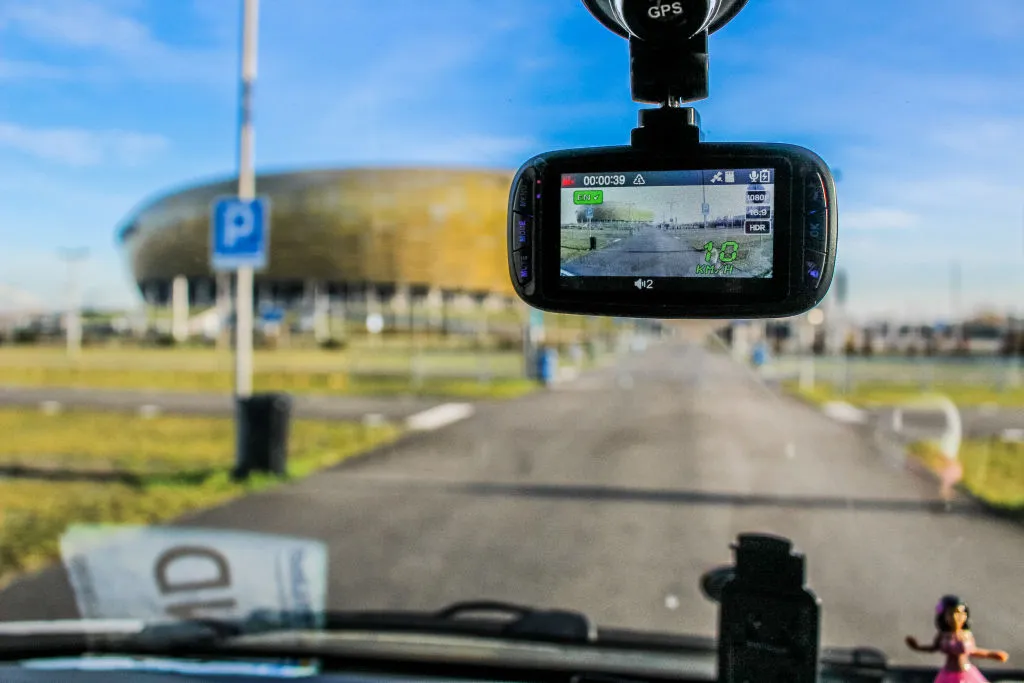Dash cams, or dashboard cameras, offer both peace of mind and potential evidence in the event of an accident or traffic incident. Their use is rising, but drivers in Michigan must be aware of specific regulations governing their installation and use. This article aims to clarify those laws and offer best practices for dash cam owners in the state.
Dash cams are compact video cameras, typically mounted near the dashboard or rearview mirror of a vehicle. They continuously record footage of the road and surrounding environment. Dash cams offer several potential benefits:
- Evidence in case of accidents: Footage can help establish fault, protect from fraudulent claims, and provide crucial details for insurance companies.
- Driving behavior monitoring: Reviewing footage could promote safer driving habits and identify areas for improvement.
- Road trip documentation: Dash cams can capture scenic routes and create travel memories.
- Protection against theft and vandalism: Some dash cams may activate recording if they sense unusual activity around your parked vehicle.
Michigan Dash Cam Regulations: The Essentials
Michigan law has specific stipulations concerning dash cam usage. It’s essential to be aware of these regulations:
- Windshield Mounting Restrictions Michigan law prohibits mounting any objects on the windshield in a way that obstructs the driver’s view. This means dash cams cannot be directly attached to the windshield in most typical passenger vehicles.
- Exemptions for Specific Vehicles There are exceptions to the windshield mounting restriction:
- Buses
- Truck tractors
- Vehicles with a gross weight above 10,000 pounds
- Vehicles transporting hazardous materials
- Audio Recording and Consent Michigan is a “two-party consent” state regarding audio recordings. This means it’s generally illegal to record a conversation without both parties’ consent. If your dash cam can capture audio, it’s crucial to inform passengers and obtain their permission before recording.
Practical Dash Cam Installation Tips
To comply with Michigan laws and ensure optimal dash cam functionality:
- Ideal Placement Consider these alternative mounting positions: * Lower portion of the dashboard * Behind the rearview mirror, ideally where the tinted strip along the top of the windshield ends
- Avoid View Obstruction Ensure the dash cam doesn’t block your view of the road, traffic signals, or road signs. Improper placement could result in safety concerns and potential traffic violations.
Dash Cam Footage as Evidence
Understanding how dash cam recordings might be used in legal contexts is important:
- Admissibility in Michigan Courts: Footage from dash cams can potentially be introduced as evidence in court cases. The judge will determine the relevance and authenticity of the video.
- Potential Use in Insurance Claims: Dash cam footage can help streamline the insurance claim process by providing clear documentation of an incident. This could assist in expediting claims and determining liability.
Privacy Considerations
Dash cam use raises potential privacy concerns. Here’s what you need to know:
- Michigan Law on Recording Others:
While it’s generally legal to film in public spaces, audio recording is subject to Michigan’s two-party consent laws. Dash cams that capture audio should be used with caution.
- Best Practices When Using Dash Cams
- Inform passengers if your dash cam has an audio recording function and obtain their permission before recording.
- Consider turning off audio recording features if you are unsure of the legal implications.
- Avoid recording conversations unrelated to driving or road safety.
- Delete footage that is no longer relevant or potentially sensitive.
Frequently Asked Questions (FAQs) About Michigan Dash Cam Regulations
Q: Can I mount my dash cam anywhere on my dashboard?
A: Ideally, mount your dash cam on the lower portion of the dashboard to minimize potential obstruction and ensure it doesn’t interfere with your view of the road.
Q: Are there any restrictions on dash cams with night vision or parking mode?
A: No, Michigan law doesn’t specifically address dash cams with these features. However, it’s advisable to ensure such features don’t create any unnecessary light sources that might hinder your vision while driving.
Q: Does using a dash cam affect my insurance rates?
A: While using a dash cam doesn’t directly affect rates, footage supporting your driving behavior in the event of a claim could potentially have a positive impact on premium negotiations. Check with your insurance provider about potential benefits.
Q: Can dash cam footage be used against me in court?
A: Footage from your dash cam could potentially be used by either side during a legal proceeding. If you’re involved in an incident, it’s best to consult with an attorney to determine how dash cam footage might factor into your case.
Conclusion
Dash cams can be valuable tools for Michigan drivers when used responsibly and legally. Adhering to the state’s guidelines regarding mounting and audio recording ensures compliance and maximizes the potential benefits of dash cam usage. Understanding the ways dash cam footage might be utilized as evidence can help drivers make well-informed decisions in the event of accidents or insurance claims.
While Michigan regulations are specific, it’s always good practice to be considerate of others’ privacy rights. Exercise caution in how your dash cam is used to respect the rights of those captured in your footage.
Sources
- Michigan Legislature, Section 257.708b: http://www.legislature.mi.gov/mileg.aspx%3Fpage%3DGetObject%26objectname%3Dmcl-257-708b
- BlackboxMyCar: Are dash cams legal in my area?: https://www.blackboxmycar.com/pages/are-dash-cams-legal-in-my-area-dash-cam-laws-in-every-us-state
- The Clark Law Office: Michigan Dash Cam Law: https://theclarklawoffice.com/michigan-dash-cam-law/
Disclaimer: This article provides general legal information and shouldn’t be construed as legal advice. If you have specific questions about Michigan dash cam regulations, always consult with a qualified attorney in your jurisdiction.



